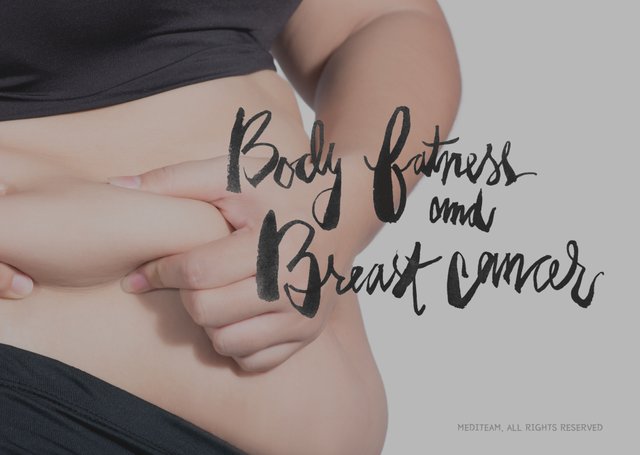[Cancer Story] Body fatness and breast cancer
In the past, obesity was a symbol of richness, but it is considered a disease in the modern age. Weight gain, overweight, and obesity have become more common nowadays than in the 1980s or 1990s. Overweight and obesity increase the risk of dyslipidemia, hypertension, stroke, type 2 diabetes, and coronary heart disease. Several types of cancer are also related to being overweight or obese. I would like to introduce the relationship between obesity and breast cancer in this article.
If you check your height and weight by a machine, you can find an index called body mass index or BMI in the machine. It is an index that is widely used as a measure of obesity, defined as weight / (height^2). In general, a BMI greater than 30 is considered obesity.

"What does breast cancer have to do with obesity?"
Breast cancer is a cancer that is more affected by body fat than other cancers. Before menopause, female hormones usually come from the ovaries. By contrast, after menopause, female hormones come out of body fat. Therefore, the more fat there is, the more exposure to female hormones, which can increase the risk of breast cancer.
"Do I get easily breast cancer if BMI is high?"
Not necessarily. A high BMI after menopause increases the risk of breast cancer, but a high BMI before menopause reduces the risk of breast cancer.
In a comprehensive analysis of reliable studies, the risk of breast cancer after menopause increased by 13% with an increase in BMI of 5. Especially, the risk was higher when BMI was above 30. On the other hand, the risk of breast cancer before menopause decreased by 15% when BMI increased by 5.
"Before and after menopause, the source of female hormones is different".
Breast cancer can take either before and after menopause, and these two types of breast cancer are quite different. As breast cancer is a disease associated with female hormones, estrogen is a risk factor of breast cancer. Exposure to estrogen over a lifetime is an important factor in the development of breast cancer (including first menstrual period, number of pregnancies, menopause, etc.).
Before menopause, estrogen is mainly produced in the ovaries, but after menopause, it is mainly produced in fatty tissue. Therefore, the more fat after menopuase, there is more estrogen exposure, which increases the risk of breast cancer.
"Abdominal fatness is a particularly dangerous..."
Abdominal circumference is associated with breast cancer development especially after menopause. According to a meta-analysis, breast cancer risk increased by 19% when the waist to hip ratio increase by 19% when the waist to hip ratio increased by 0.1. Also eating fatty food was also related. Postmenopausal women who consume more fat have higher risk of breast cancer due to a increase in the production of estrogen in the body.
Reference
- World Cancer Research Fund & American Institue for Cancer Research. Food, Nutrition, Physical Activity, and the Prevention of Cancer: a Global Perspective. 2007.
- Key TJ, Appleby PN, Reeves GK, et al. Body mass index, serum sex hormones, and breast cancer risk in postmenopausal women. J Natl Cancer Inst 2003;95:1218-26.
- van den Brandt PA, Spiegelman D, Yaun SS< et al. Pooled analysis of prospective cohort studies on height, weight, and breast cancer risk. Am J Epidemiol 2000;152:514-27

